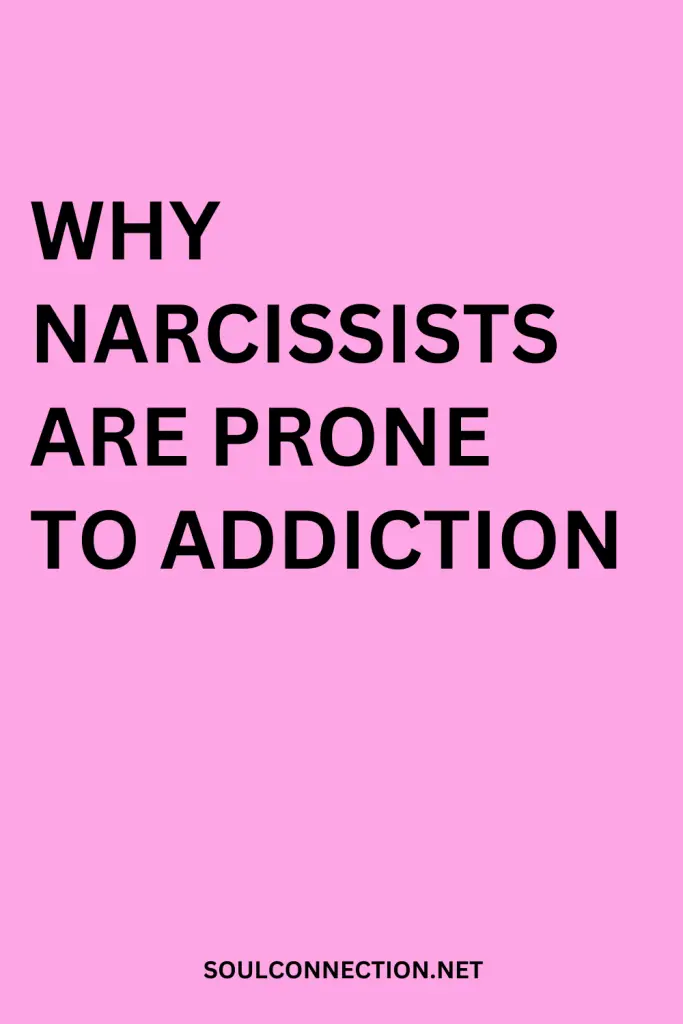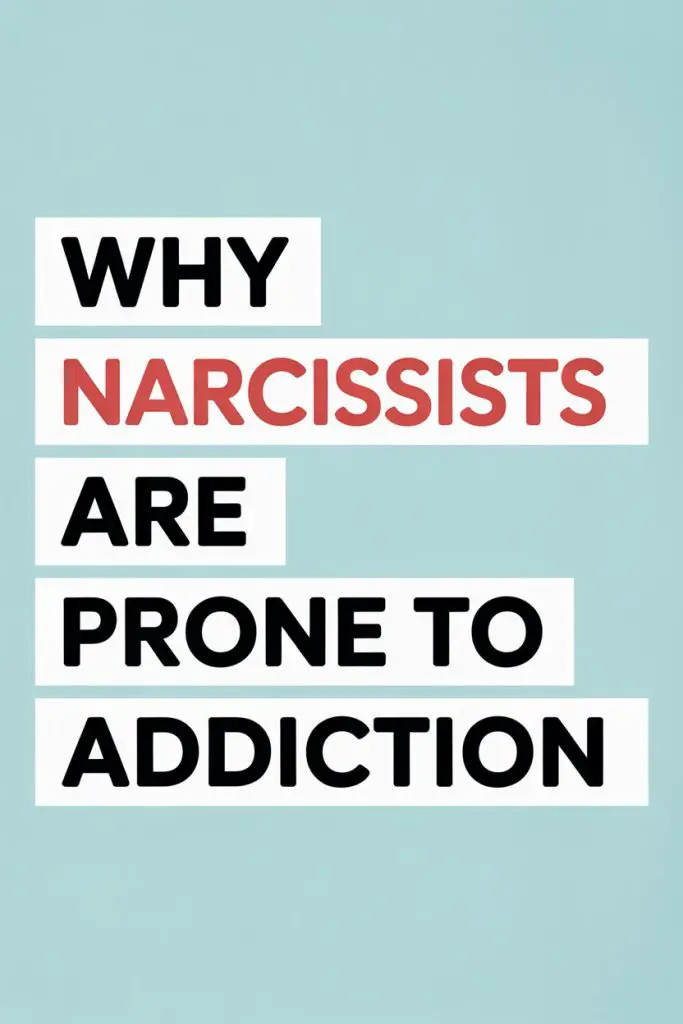When people imagine a narcissist, they often think of someone obsessed with their reflection, humming “You’re So Vain” in the shower. But narcissism is much more than a selfie habit gone wild.
Beneath the bravado often lurks deep vulnerability—a recipe that can, and often does, mix a potent cocktail with addiction.
Let’s shine a light on why folks with narcissistic traits so often find themselves stuck in addictive patterns, and what this means for anyone loving—or surviving—them.
The Narcissist’s Hunger for Validation
Narcissists are like emotional bottomless pits. While they might parade around with grand confidence, everything hinges on outside approval.
The compliments, applause, and envy of others? That’s the oxygen keeping their egos inflated.
Life, unfortunately, doesn’t play along with endless applause. When reality sets in and that validation dries up, it can leave narcissists feeling empty, anxious, or even worthless.
Enter substances, shopping sprees, or other compulsive behaviors—quick fixes that offer the illusion of instant worthiness, if only for a moment.
Addiction, in this sense, becomes the narcissist’s shortcut to feeling special. The rush of a drink, the buzz of a gamble, or the thrill of a one-night stand can fill that gaping hole—at least until the morning after.
Escaping Shame and Pain
It might surprise you to hear that most narcissists are haunted by shame. Not the garden-variety embarrassment from dropping a plate in a restaurant, but a deep, gnawing sense of not being enough.
Beneath the bluster, they’re often terrified of being found out as flawed or unlovable.
Substances and compulsive behaviors become handy anesthetics. Drugs, alcohol, porn, shopping—you name it—act as emotional numbing agents.
They mute the shame that lurks in the background, at least until the next come-down.
If you’ve ever wondered why apologies from narcissists are rare as hen’s teeth, this is part of the answer. Admitting wrongdoing means facing shame, and that’s something they’ll avoid with Olympic-level skill (or by pouring another drink).
Control Issues and the Illusion of Power
Narcissists crave control like Brits crave tea. Life, though, has a way of ignoring their preferences. When reality refuses to bend to their will, anxiety and rage bubble up.
Addictive behaviors give the illusion of control, even if only briefly. With a substance or habit, they’re in the driver’s seat—choosing when and how to indulge.
In a world that feels unpredictable, addiction offers a predictable (if destructive) escape hatch.
If you’re sharing life with a narcissist, you might notice how their rituals around addiction become sacred. Don’t mess with their routine, or you’ll catch the brunt of their anger—because that ritual is keeping their house of cards from tumbling down.
All-or-Nothing Thinking
Narcissists aren’t exactly known for moderation. Everything is the best or the worst, black or white, hero or villain. This “all-or-nothing” approach spills into addictive behaviors.
A single drink? Not likely. Why stop at one when ten is an option? If shopping lifts their spirits, why wait for payday? More is always better—until the crash, of course.
This pattern makes it tough for narcissists to set healthy limits. They leap from abstinence to overindulgence with little warning, dragging those around them along for the ride.
Sound exhausting? You’re not wrong.
Poor Impulse Control
Impulse control and narcissism go together like rain and a British summer—messy and unpredictable. The urge for pleasure, validation, or escape rarely meets much resistance.
This impulsivity means narcissists are more likely to pick up that first drink, swipe the credit card, or message an ex at 2 a.m.—often without much forethought. Regret only kicks in once the consequences land, and by then, the damage is done.
If your partner’s hobbies seem to swing wildly, or if “Just one more” is a daily motto, you’re seeing this trait in action.
Empty Relationships, Empty Feelings
Narcissists struggle to form deep, mutually satisfying relationships. Their connections tend to be transactional—what can you do for me, and how quickly? Emotional intimacy is both baffling and a bit terrifying.
This chronic emptiness leads many narcissists to seek fulfillment elsewhere. Addiction conveniently fills the void left by shallow relationships.
Substances, money, or risky adventures stand in for love, acceptance, and genuine connection.
For partners, this can feel particularly lonely. You’re trying to build a bridge, but they’re already halfway to Vegas with a suitcase full of distractions.
Entitlement and Rule-Bending
Rules? Those are for other people. Narcissists often believe they deserve special treatment, and limits apply only to the little people.
This entitlement can make them especially resistant to the idea that they might have a “problem.” After all, they’re different—unique, gifted, misunderstood. Why shouldn’t they enjoy life’s pleasures to the fullest, even at their own peril?
This mindset means that interventions, ultimatums, and boundaries often trigger outrage rather than reflection. The addict in them finds an ally in the narcissist’s sense of exceptionalism, making recovery extra slippery.
The Need to Escape Accountability
Nobody enjoys getting caught with their hand in the cookie jar, but narcissists will do almost anything to avoid it. Blame-shifting is their default setting.
Addiction can provide a handy excuse for bad behavior—“I only said that because I was drunk,” or “I wouldn’t have done it if I wasn’t so stressed.” At the same time, the narcissist’s need to dodge responsibility means genuine change is an uphill battle.
They’ll blame everyone from their childhood dog to their boss before looking in the mirror.
This can make life with a narcissistic addict feel a bit like starring in a soap opera—plenty of drama, not much resolution.
Risk-Taking as a Way of Life
Narcissists are adrenaline junkies. Rules and limits? Boring. Taking a risk—whether it’s a financial gamble or an illicit affair—offers the thrill and novelty they crave.
Addictive behaviors fit right in with this high-stakes lifestyle. The bigger the risk, the better the rush. And if it blows up? Well, there’s always someone else to blame.
This tendency puts narcissists in harm’s way, but it also sucks in partners and family members, who may end up feeling like unwilling adrenaline tourists.
Self-Soothing Never Learned
Most people figure out fairly early how to comfort themselves—reading, having a cuppa, phoning a mate. Narcissists, however, often missed this memo.
Without healthy self-soothing skills, they’re left with few choices when anxiety or sadness hits. Substances and compulsive behaviors become the default, offering comfort without the need for pesky vulnerability or honest emotion.
If your partner seems unable to just “sit with” uncomfortable feelings, and always reaches for their favorite distraction, you’re witnessing a learned helplessness at work.
Addiction as a Mirror
Narcissists see themselves as special, and addiction can reinforce that illusion. The drama of addiction—the secrecy, the near-misses, the “nobody understands me” narrative—becomes part of their identity.
Ironically, the very thing that gives them a sense of uniqueness also isolates them further. The cycle of shame, escapism, and self-destruction deepens, making help seem more and more out of reach.
What You Can Do (Without Losing Your Mind)
If you’re involved with a narcissist struggling with addiction, you’ve probably run out of cheeks to turn. Here’s what actually helps—no saintly patience required.
Set non-negotiable boundaries and actually stick to them. Not easy, but necessary. Don’t try to rescue them from consequences; those “rock bottom” moments are often the only catalysts for change.
Find your own support, whether it’s therapy, friends, or a support group where you can vent without judgment.
Recognize your limits. Changing a narcissist—addicted or otherwise—isn’t in your power.
Protect your sanity, and don’t buy into their blame games. You’re not the cause, and you’re not the solution.
Yes, it’s heartbreaking to watch. But sometimes, the kindest thing you can do is step back and let reality do the heavy lifting.
Hope Exists (Even if Narcissists Won’t Admit It)
Recovery isn’t impossible. Narcissists can—and sometimes do—change, especially when consequences pile up or they catch a glimpse of what life could be without the self-destruction.
Therapy, especially approaches focusing on both addiction and underlying personality issues, can work wonders.
Change is slow, and self-awareness isn’t their strong suit, but with consistency and support, some narcissists do manage to break the cycle.
If you’re loving (or leaving) a narcissist with addiction, remember: saving yourself isn’t selfish. It’s survival.
And with the right support, you can reclaim your peace—whether or not your narcissist ever gets their act together.


